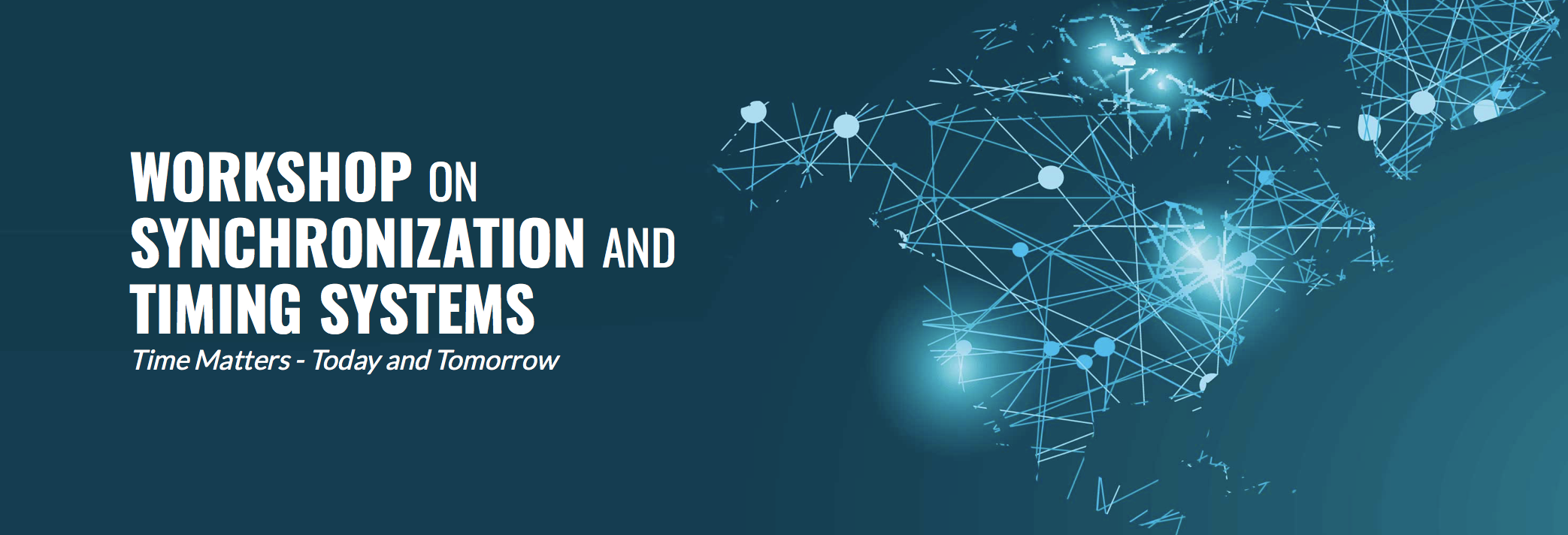The 27th Annual Workshop on Synchronization and Timing Systems (WSTS), sponsored by NIST and ATIS, will take place June 18-21, 2018 in San Jose, California.
WSTS is a vendor-neutral technology workshop that addresses evolving sync requirements, as well as the roll-out of new sync systems and standards and their impact on industries and equipment manufacturers.
The WSTS is managed by a Steering Committee composed of synchronization experts representing a cross section of users, manufacturers and professionals associated with synchronization in a variety of industries. The Committee sets the strategic priorities for the event and defines the main topics to be addressed each year.
WSTS represents pre-eminent experts in synchronization for telecom and related applications. Many of these experts participate in various standards bodies including ATIS, ITU, IEEE and IETF.
Accurate time synchronization is an essential driving force in the success of today’s most commonly used technologies. Telecom, finance, utilities, broadcast, transportation, IoT, and defense are evolving with critical timing enablers in many of their systems.
Telecom continues to require tighter “sync” particularly for the operation of mobile wireless systems. 5G, driven by the demands of significantly greater spectral efficiency and the migration to small cells, is particularly sync-dependent. Next-generation E911 networks now have new, more stringent requirements for time synchronization.
Many other industries are finding either the need or the attraction to precision timing and synchronization. In the finance industry, markets are coming under tighter restrictions on time-stamping of trades. The power industry needs accurate reliable time for managing the grid. Smart Transportation Systems will need a number of types of precision timing to support a wide variety of systems and services. In the Internet of Things (IoT), many are forecasting an unprecedented growth of endpoints to the network that will require time-stamping in sensors and latency control. Defense systems require various kinds of timing to support actions and services in challenged environments.
Also, greater awareness is developing of GPS and GNSS vulnerability to intentional and unintentional interference. Today’s networks face challenges as they support both existing and emerging services that have a variety of sync needs: time, frequency and phase synchronization. Add to the mix that new standards for time synchronization are being developed in the ATIS, ITU, IEEE, IETF and other standards bodies.
“GPS is extremely reliable and accurate, and that’s why our timing systems depend on it.” says Marc Weiss, Founder and Chair of WSTS, “However, extreme reliability is not one hundred percent reliability. That’s why GPS’ effectiveness is also a problem and has led to blind trust. Most companies do not have back-ups for when the system goes down. Any form of failure can be catastrophic.”
On June 22 there will be a co-located event — Assured Access to Accurate Time Workshop: A Comprehensive View of Timing Solutions and Interoperability Issues.
The goal of this workshop is twofold: to come to a consensus on a set of attributes defining assuredness of time, as well as to provide a venue for coordination between user communities, government players and time providers. For more details go to http://www.atis.org/assured-access/






